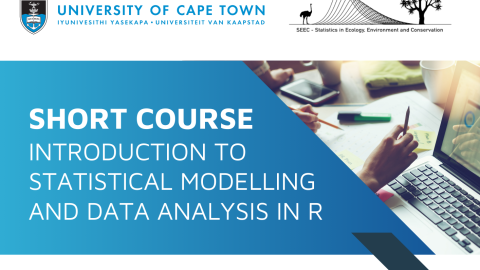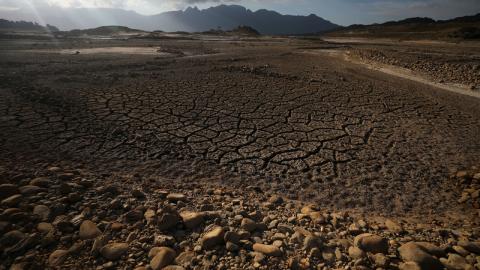
Welcome to the Centre for Statistics in Ecology, the Environment and Conservation (SEEC)
Leaders in Statistical Ecology and Environmental Analytics within South Africa


Publications

Current News
The Centre for Statistics in Ecology, the Environment and Conservation (SEEC) is an inter-departmental grouping based at University of Cape Town. Our goals are:
- to be the leading group in statistical ecology and environmental analytics within South Africa
- to provide a hub connecting statisticians and biological / environmental scientists to ensure that the most important environmental questions are addressed with cutting edge statistical methods
- to develop methods that link data analysis and modelling into the conservation planning and management process
Scientific knowledge progresses by confronting hypotheses with data. The statistical sciences develop quantitative tools for evaluating hypotheses in the light of data and therefore assume a critical role within science. This is especially true for the biological and environmental sciences, which study complex systems with large amounts of multi-layered data and are faced with decision making problems that directly affect human livelihoods and well-being. Recent developments in statistical methods are revolutionising the way ecological and environmental research is conducted. These developments led to the fields of statistical ecology and environmetrics.
The goal of these fields is to address core questions in ecology and environmental sciences using novel statistical approaches, which account for uncertainty more comprehensively and extract signals from noisy data more reliably. This is leading to a far deeper understanding of natural systems, which is the foundation for the sustainable use and management of pressures on biodiversity in the face of global change.
Background
South Africa is one of the 17 top mega-diversity countries, which together hold two-thirds of the planet's biodiversity. The value of South Africa's biodiversity for the country's economy is well recognised: ecotourism is a large, growing and sustainable area of employment; a large proportion of the rural population depends on the sustainable use of biodiversity; the sustainability of the entire economy is predicated on the ecosystem services provided by a well-functioning environment.
A quantitative understanding of environmental processes that is based on the best available statistical methods used in structured decision-making situations is therefore critical for the country. Tasks such as attributing observed environmental changes to various drivers and conducting cutting-edge environmental research will depend increasingly on the development and availability of a new generation of statistical tools, and people with the skills to apply them. Management of human activities in ecosystems needs evidence-based decision making tools, set in a multi-criteria decision-making framework.
The Centre is hosted by the Department of Statistical Sciences and general enquiries can be made to seecuct@gmail.com or you can sign up to our mailing list for regular updates of SEEC's activities.
News and Updates from Across the SEEC Network

Apply soon for SEEC's annual statistical modelling short course

Challenges in mapping land degradation in South Africa

